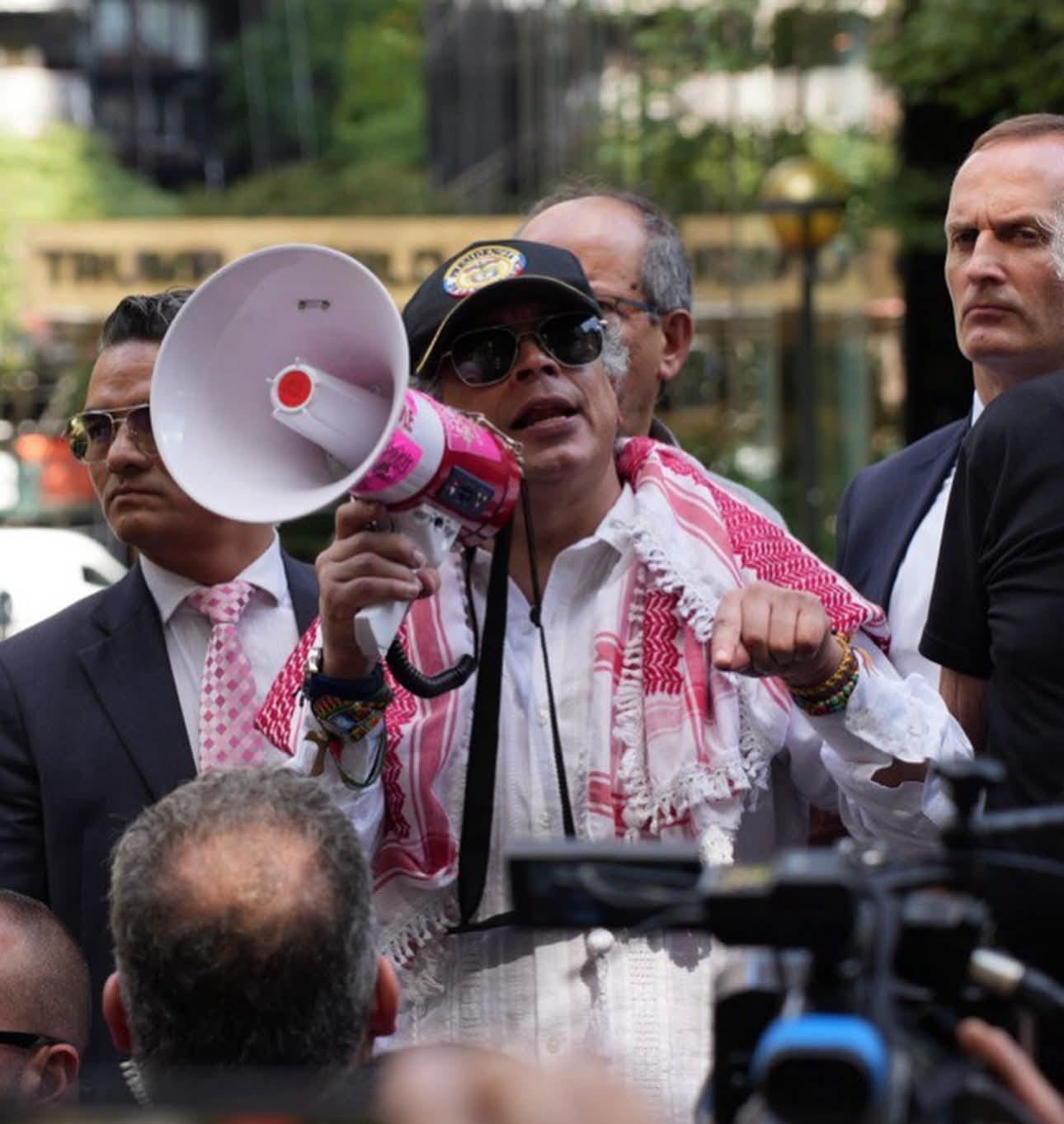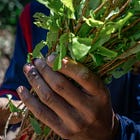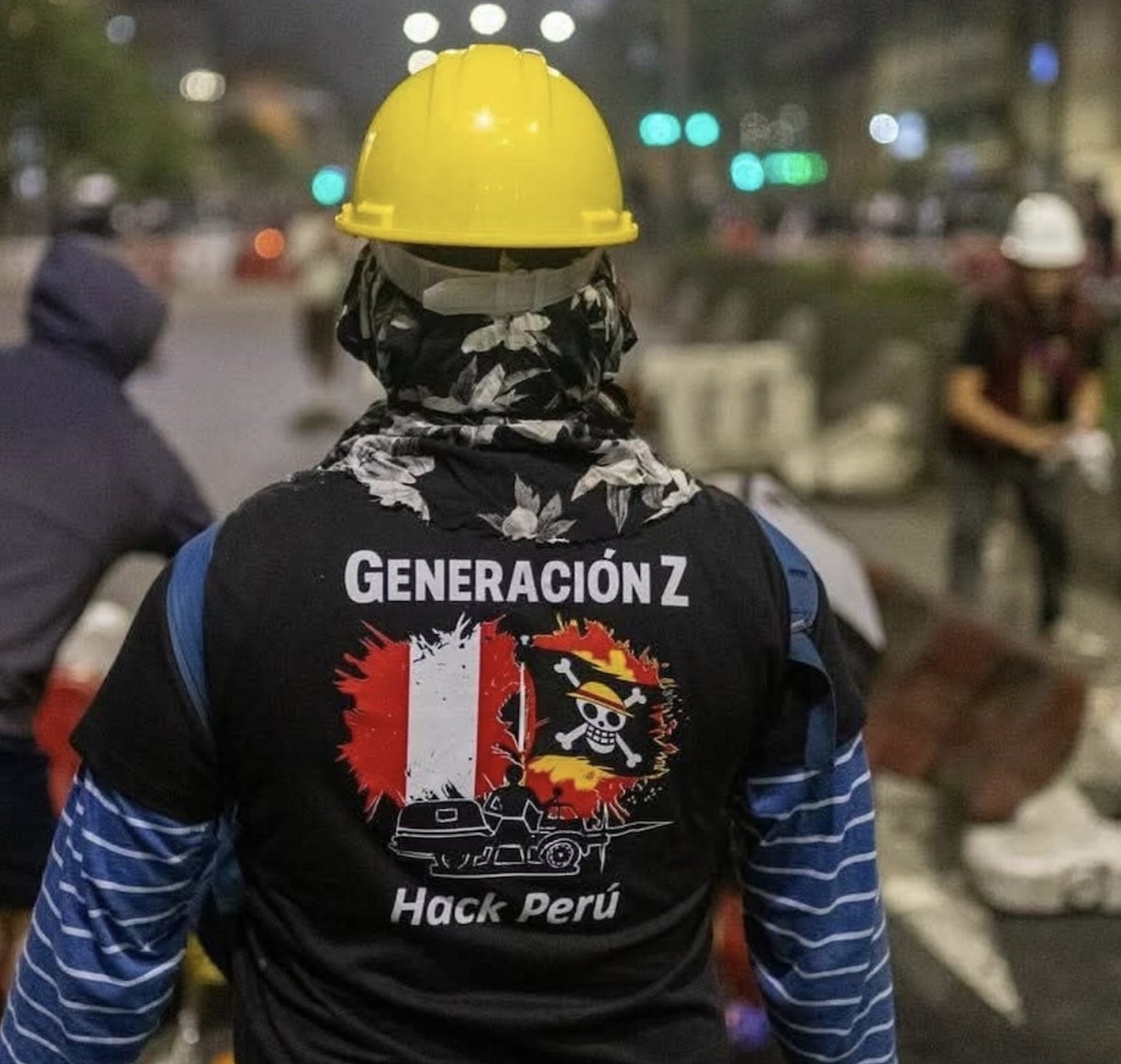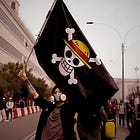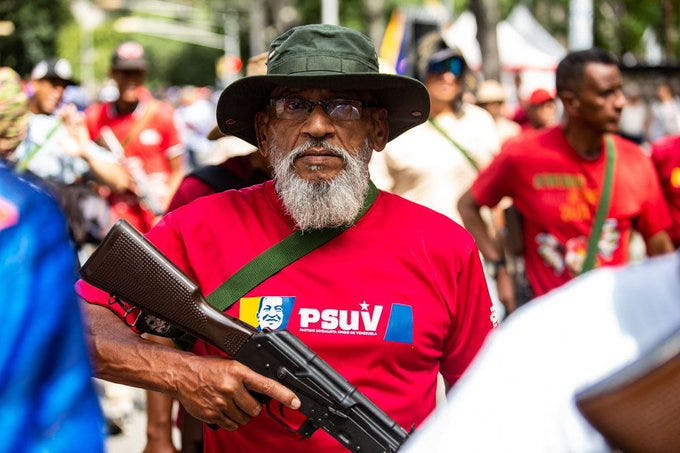The Big Stories to watch this week in LATAM
Petro takes Manhattan, Peruvian protests escalate, and Venezuela is giving out guns.
LATAM Daily Wires brings you the stories to watch this week in Latin America and the big headline developments over the weekend. If you haven’t subscribed yet, you should.
Petro Takes Manhattan
The US State Department withdrew the visa of Colombian President Gustavo Petro after he gave a speech to a large crowd protesting Israel outside of the United Nations General Assembly on Saturday.
The US said the revocation was due to “his reckless and incendiary actions” in opposition to Israel’s genocide in Gaza, rhetoric which “urged U.S. soldiers to disobey orders and incite violence.”
In the speech, which Petro posted to the presidential social media accounts, Petro praised the US for “defeating fascism in the past.” He urged US soldiers not to follow orders to fire on civilians, should they be faced with such an order.
He strongly criticized Israeli actions in Gaza, Trump’s migration policies, and the bombings of speedboats in international waters near Colombia, actions which he described as “murders.”
The specific phrase that seemed to anger the US State Department was “From New York, I ask all soldiers in the United States Army not to point their guns at humanity. Disobey Trump’s order and obey the order of humanity.”
Colombia and the US have historically been close allies, but since Trump took office in January, that relationship has frayed considerably. Petro and Trump have clashed over deportation flights, and Petro has been a frequent target of verbal attacks by US Secretary of State Marco Rubio.
The US decertified Colombia, which is the largest producer of cocaine in the world, as an ally in the ‘War on Drugs’ in mid-September, though it stopped short of sanctions.
Petro is in his last year in office, and Colombian presidents are prohibited from seeking a second term. It seems he feels he has little to lose by speaking up about Israeli actions in Gaza, an issue he has long been vocal about.
“Revoking [my visa] for denouncing genocide shows the US no longer respects international law,” he stated Saturday in posts to social media.
It is worth watching how the US-Colombia relationship fares over the next few weeks and months. Colombia heads to elections next year, and Rubio is clearly pushing for a right-wing ally in the country.
Peruvian protests aren’t stopping anytime soon
Ongoing protests in Peru continued over the weekend, with youth-led marches at times clashing with police in Lima.
At least 19 people were injured, including a journalist. One police officer was also hospitalized with first-degree burns after being hit by a Molotov cocktail, according to government statements.
The protests are national, though the “Gen Z” protests in Lima have captured the country’s attention through the use of street tactics and imagery borrowed from the “Asian Spring” revolutions in Nepal and Indonesia.
Protesters demand the resignation of President Dina Boluarte, who may well be the least popular leader in the world currently, pension reform, and protection of the rights of protesters, who have often been victims of police and military violence.
Venezuela makes a show of arming militias
The government of Venezuelan President Nicolas Maduro has spoken loudly and frequently in recent weeks of arming citizen militias in recent weeks in response to US naval deployment and attacks on speedboats in international waters near Venezuela.
It is usually difficult for journalists from international media companies to obtain visas to report from inside the country. But as part of efforts to show his defiance to US aggression, several high-profile organizations have been granted access to the country, resulting in on-the-ground features from the New York Times and the BBC.
Claiming to be in the process of arming 4.5 million militia members, Venezuelan officials have been trying to present a unified front, with virtually all Ministers making public appearances at militia training sessions.
The militias are largely senior citizens from neighborhoods that have long been Chavista strongholds, but also include younger public employees. There are unconfirmed reports that some state employees have been pressured into joining the groups.
Interestingly, the Times managed to interview the wife of one of the men who died on the first speedboat bombing, which killed 11 people. She denies that her husband was involved in drug trafficking, instead insisting that the boat was a fishing vessel.
More headlines:
Ecuadorian protests are continuing too! They’re getting far less media attention in part because they are occurring in largely rural indigenous areas, but keep an eye out. CONAIE is def still doing its thing.
The gruesome live-streamed murder of 3 young women in Argentina has sparked protests as well. Our compatriots over at the Buenos Aires Herald have the details.
You can also donate a one-time gift via “Buy Me a Coffee”. It only takes a few moments, and you can do so here.
And if you can’t do any of that, please do help us by sharing the piece! We don’t have billionaire PR teams either
.



